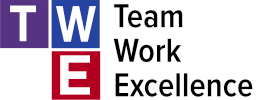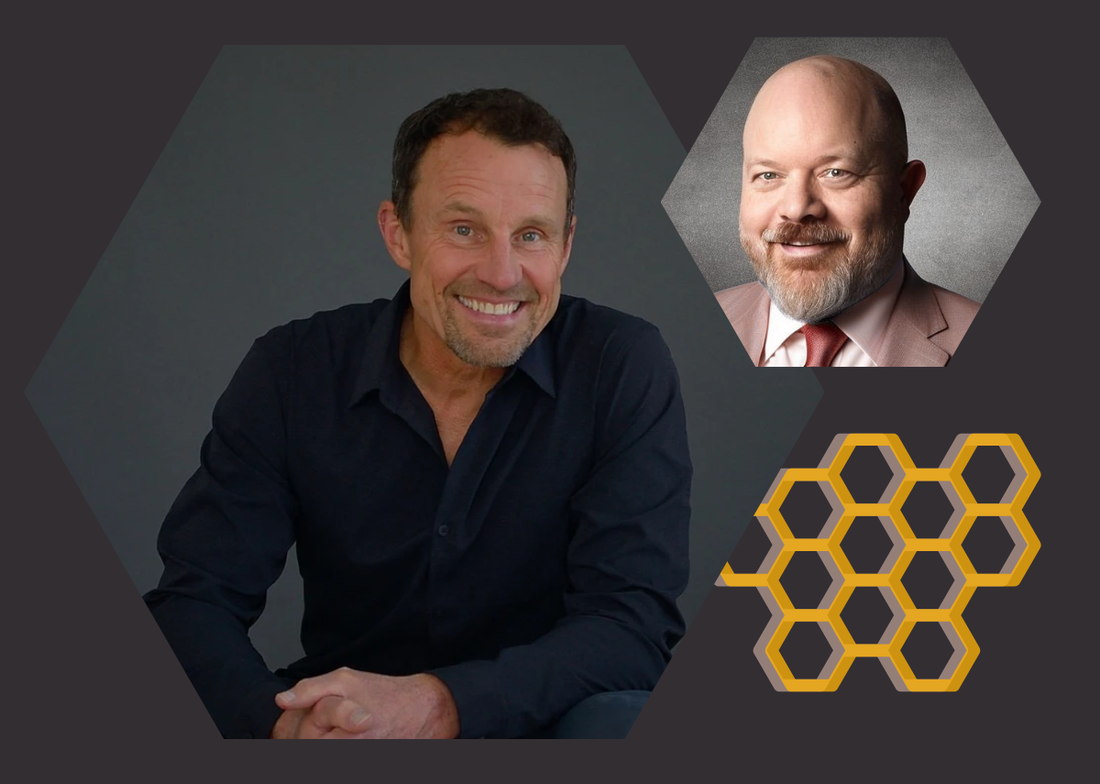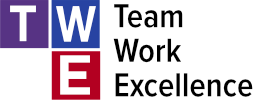|
Episode Summary
Tim Sweet is joined by Richard Young, performance clarity expert and author of Simplify, to talk about Richard’s three systemic keys that set repeated medalists apart from the rest. Richard’s insight on sustained performance isn’t solely applicable to sport, but to every aspect of life in which we want to excel.
About Richard Young
Richard Young has been involved with preparation for 10 Olympics across most roles (athlete, coach, leader, researcher). He has won international gold medals, coached world champions, and created programmes in innovation and learning that have contributed to Olympic medals for three countries.Richard has a PhD and later targeted his research to the differences between medallists and non-medallists, their coaches, technical staff, leaders and the system they are in. He is driven by helping others convert high potential into sustained high performance. He works internationally helping leaders and experts simplify, align and accelerate. He was married 24 years to a beautiful person, Donna, who passed away in October 2021 from illness. Born in the UK, raised in Canada, Richard currently lives in Dunedin, New Zealand with his four children. Contact Tim Sweet | Team Work Excellence: Contact Richard Young | Performance Clarity Expert, Author, Breakthrough specialist: Transcript Transcript Richard Young: [00:00:00] Your bones get stronger and we recover. So we need stress. And Gallup studied 121 countries and 150,000 people, and they found that meaningful lives had stress. No stress. No meaning. But coping was the key difference. So if you can't cope, then it's not a meaningful life. It's a real corner you're stuck in. Tim Sweet: [00:00:25] I'd like to ask you some questions. Do you consider yourself the kind of person that gets things done? Are you able to take a vision and transform that into action? Are you able to align others towards that vision and get them moving to create something truly remarkable? If any of these describe you, then you, my friend, are a leader. And this show is all about and all for you. Welcome to the Sweet on Leadership Podcast, episode eight. [00:00:53] Welcome to the Sweet on Leadership Podcast, where we unlock the secrets of the most influential, trusted and impactful leaders in business today so you can become your best version of a leader. And now your host, don't get him started on why Dungeons and Dragons teaches life skills, Tim Sweet. Tim Sweet: [00:01:17] In this episode of Sweet on Leadership, I'm absolutely thrilled to welcome my friend and mentor, Richard Young, to the show. Richard is a true expert in the field of high performance. He has decades of experience as an athlete, coach, leader and researcher. I first met Richard years ago when we were both studying structural consultation with Robert and Rosalind Fritz in Vermont. We were bonding over being Canadian, having mutual friends in the Calgary biking community, and a shared passion for helping people achieve their full potential. I remember I felt I had known him for years. His curiosity, sense of humor and easygoing personality made him easy to connect to and care about. Since then, I've been lucky enough to stay in touch with him. His work in sport has been absolutely influential to my practice with business and academic leaders. In his book 'Simplify', he's distilled these years of knowledge and experience into a high-performance playbook that will help you win the long game. In the book, he outlines three systemic keys that set repeat medalists apart from the rest of the pack. Strategic simplicity. Language alignment. Performance wellbeing. These are keys not only applicable in sport, but in any aspect of life and career. Richard's research has focused on decoding what makes successful competitors, coaches and support teams perform at their best. Tim Sweet: [00:02:42] As a former Olympic athlete and coach himself, Richard has won international gold medals and coached world champions. He's also created several programs in innovation and learning that have contributed to Olympic medals and world championships around the globe. I've been fortunate enough to learn directly from Richard, and that's what I'm wanting to bring to you today. I can attest to the value and applicability of Richard's work, not only from how it's helped me help clients, but helped me directly. Beyond 30 years of impressive credentials, I have to say that Richard is just a great guy. He's warm and thoughtful and deeply committed to helping others achieve. It's an absolute honor to bring Richard to you today so he can speak about his work and insights that he's gathered over an incredible career. So without further ado, let's dive into this conversation with Richard Young. Richard, it's really great to have you join me again. Every time I talk to you, I get so excited not just because you're so knowledgeable in your space, you're just one of those people that is great to spend time with. It just fills me with joy every moment that I get to spend with you. And it's really a gift for you to be here today. So thank you for joining me. Richard Young: [00:03:57] Oh, same to you, Tim. Same to you. Tim Sweet: [00:03:59] We were talking just before we hit record here and, you know, chewing around some ideas of what we could speak about. And I think the one that really resonated for both of us was this idea of sustained performance. And when I think about this in terms of the needs of my audience and my clients or any organization for that matter, we're in a period right now where people have worked hard to make it through a tumultuous time, and they've put a lot of systems in place and they feel like they're doing a lot right. But I hear back that we still have attrition and we're losing people, and it feels at times like people aren't connected to their career and they're not connected to the goals of the business. And the teams will start to kind of dissolve and separate. And so you do so much work in this space. Maybe you could tell me a little bit about some of the work that you've been doing that's exciting in terms of sustained performance and then either before or after, really give us a rundown on what you think that means and how you define it. Richard Young: [00:05:06] Yeah. Yeah. Okay. Okay. So my area is high-performance sport. So that's where I have lived most of my life and that's most of the work I do. And so I work with senior leaders and experts, so that means they have in that game won a lot. And so sustained performance has a different tone to them. So it isn't just a medal now and again, it's a sustained winning culture. And winning isn't just output and outcomes. So after a lot of years in the game, and most of the senior leaders would say the same thing, that high performance is communication. And so the medal is symbolic and it always catches up to high quality communication. So that's what starts the game and sustained performance. It turns out from having done work at the Olympic, it's mostly Olympic sport, and then compared the differences across five Olympics of medalists and non-medalists, and so repeat customers basically, so winning a medal isn't that hard. But maintaining a winning culture is very hard. And so a couple of points that you raised there of burning through people and churning through good people. So that's typical in winning cultures. When it's an output, they just burn through people and move to the next one. And I live in New Zealand and so the population is small and you can't burn through people here. So the talent pool is small, the population is small, and so it stands out when you're burning through people that there's nobody in line to take over. Richard Young: [00:06:54] And not only that, it's not just a numbers game, but nobody's voting to join because of the culture that you've got. So I found three things in my work that are key systemic differences between sustained performers and the rest. And that's they have well-being, they have simplicity, and they have alignment. Those three, and how you see it, well-being is energy and you can feel it in, like one performance director said, it meets you at the door. So the kind of energy and well-being, it isn't just healthy habits because in sport there's a lot of healthy habits. That's one definition of well-being or wellness and there's life well lived is another definition. But the definition that I've arrived at over time is performance well-being. And that's performing well in every moment. So, or as the Dreyfus brothers said, skillful coping. And you get a lot of disasters in sport from people who can't cope and stress is part of the game in not only sport, sport's no different to the rest of life. You know a lot of people talk like it is, but it isn't. So there's wins and losses and, you know, public scrutiny and sometimes you get hired, fired, selected, deselected, all of that. It's life. And so the leader is, across the board, like the athlete as a personal leader, the better they are at coping what's in front of them. And then they leave the sport bigger and better. Tim Sweet: [00:08:28] When you say skillful coping, and I think it's a great term, is it related to, say, resilience, the ability to handle what's in front of you and then adjust, recover, move to the next step? Would that be a good analog? Richard Young: [00:08:41] So that's one part of it, because resilience is you don't break, and antifragility is probably closer to skillful coping, which is you get better with stress. So like a bone, like you were just telling me about your surgery. And so with stress, your bones get stronger and we recover. So we need stress. And Gallup studied 121 countries and 150,000 people, and they found that meaningful lives had stress. No stress, no meaning. But coping was the key difference. So if you can't cope, then it's not a meaningful life. It's a real corner you're stuck in. So antifragility in this game and in sport for sustained performance, is it. And so we deal with empowering and transforming people so that they are able to respond. You know I got Lane Eight but I wanted Lane One. How do you cope? It's small things and then it's big things as well. I'm deselected, life is over in my first thought, but my second thought is no I've learned a ton in sport and I've got a lot to offer. So that's part of the triangle. And the other is the simplicity. They're doing what matters. And it's pretty simple. Tim Sweet: [00:09:58] And that sounds like that's a, that wellbeing or that choice that you just put in front in that example, I've been deselected, wait a minute, I've learned a lot. I now need to go forward and get from the eighth spot to the first spot. This is a chance for them to focus in on what really matters and that simplicity that you're talking about. Richard Young: [00:10:16] Yeah, that's right. So they're interconnected. So it looks like a triangle, probably like that, but it's actually not a triangle. It's like an infinity symbol like that. So you touch one thing and you touch the rest. If things get simpler, then it's easier to align people up to a purpose. And in sport, the purpose matters and it has to be something that fires you up to get you out of bed. And so if you've got repeatable winning, you can hear kind of the exhaustion in people. They've done it before, but there's something deeper, and so sustained performance is the new deeper. So how do we maintain a successful culture? And yes, medals are appearing, but how do we change how we operate, how we communicate across our entire organization? And so on. A triangle of well-being, alignment, and simplicity, it can be laid over any part of the organization. So how they select, so what's the entry like? What's the exit like? When you're deselected, what does the organization do for you? When you've been in the game for 20 years and they've just hired a new coach and you're out, how does the organization deal with the out? What does that look like? So it's role modelling sustained performance all the time, performance communication all the time. Everybody's watching and you role model how you want the organization to look even when there's no one in the stands. Tim Sweet: [00:11:50] What happens when a group steps off that sustained performance, steps off that role modelling and they fail to in an instant? Is it catastrophic? Does it reverberate through the organization? What happens when they mess up? Richard Young: [00:12:07] Yeah. So it depends what level they are. So if you've got an athlete that's messed up, we can, you know, we can realign. So, you know, values, purpose, all the work that you do as well helps realign. So it isn't just an event, Oh that went wrong, just do it differently next time. It's actually looking underneath, like arduous work as well. What's underneath that? So the event, the pattern, and there's typically a systemic component underneath every event. So we can work with the athlete at that level. If it's at the leadership board level, it's a bigger ship steering a lot slower so it can have a bigger ripple. So the alignment, spinal alignment, it's called in sport from top to bottom, from board chair to athlete. Tim Sweet: [00:12:54] I love that. Oh, that's great. Richard Young: [00:12:56] And if that's not there and the top steers the boat, so if you're looking at the athlete down here and the board chair up here, if they wobble, you can see it's a big instability in the whole boat. If we've got some small wobbles down here, it's not rocking as much. But the alignment across the top to bottom, our purpose, our values, what matters. And so the model works to help just bring unconscious to conscious. Tim Sweet: [00:13:25] And that is your third point to that triangle, isn't it? Alignment. Richard Young: [00:13:28] Yeah. Yeah. And it's seen in language. So from all the reviews that I've done. So it was hundreds and hundreds of interviews and an analysis of language. You can see the clarity. And then when you're inside the organization, you can, you can hear it and you'll know that in your work, like what people say describes the alignment they've got. And the longer you're in the game, sometimes we've got more because experts have more assumptions than others, which is a bummer. But that is how it is. And so uncovering these assumptions and blind spots is the difference maker between a performance and a sustained performer. Sustained performers have fewer blind spots. And so I use that triangle to uncover blind spots. That's really where it's pointed. Tim Sweet: [00:14:22] So we should begin to alter our thinking. I mean, we often talk about high-performance organizations, and high-performance organizations are not the pinnacle of performance. We need to be thinking about sustained performance, which is really a superior position because it allows us to perform excellently and keep on performing excellently and make sure that, I imagine it's also a continuously improving entity at that point because it's dealing with things as they arrive and understanding them and reconstituting itself to handle those external pressures and internal strife and whatnot. You have given me so much new language from the spinal alignment, which I think is just fantastic - I said that right, I hope - to antifragility and oh man, every time, Richard, every time I talk to you, it's like a treasure trove and a gold mine of new learning. And I just really appreciate you taking us off the page when we get so stuck with thinking about standard business thinking and theories. You really challenged me today, and I love it. And I can't wait for the next time we do this. Richard Young: [00:15:37] Right. Same here, Tim. Yeah. Tim Sweet: [00:15:38] Yeah. But so much to chew on. So thanks very much. And I can't wait till the next time I can get you on the mic. So thanks for joining me, Richard. Richard Young: [00:15:48] Pleasure, Tim. Pleasure. Love your work. Tim Sweet: [00:15:51] All great. Thank you so much. We'll talk soon. Ready to unlock your leadership impact and build unshakable teams? Let's work together! Free 30 Minute DiscoveryComments are closed.
|
Videos, Articles, Tools and More for Leaders in BusinessSET UP FOR SUCCESS?
|
|
© TeamWorkExcellence 2023. All rights reserved.
|



 RSS Feed
RSS Feed
